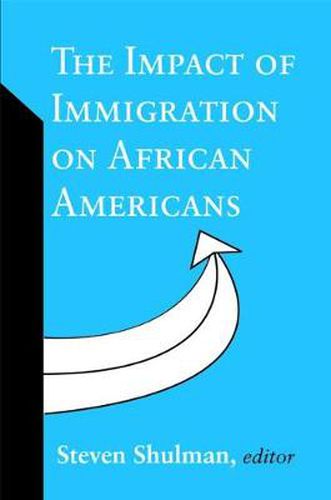Readings Newsletter
Become a Readings Member to make your shopping experience even easier.
Sign in or sign up for free!
You’re not far away from qualifying for FREE standard shipping within Australia
You’ve qualified for FREE standard shipping within Australia
The cart is loading…






Immigration has significant consequences for all Americans, but especially for African Americans. The sheer magnitude of immigration - it is the primary factor driving population growth - is so large that it directly or indirectly affects the economic, political, social, and environmental circumstances of most Americans. But the geographic concentration of immigrants in urban areas, and the economic concentration of immigrants in the low-wage sector of the labor market, have special consequences for African Americans since they are especially likely to live in urban areas and to be low-wage workers. These effects can be both negative and positive. Immigration has sharply increased the supply of labor into the low-wage sector of the labor market, which tends to reduce wages and employment opportunities for low-wage native workers. Employers may prefer hiring immigrants, who are perceived to be hard working and uncomplaining, to hiring African Americans. Immigrants can also increase the competition for scarce public services (especially education) on which African Americans depend. Yet immigration can also stimulate economic growth and urban revitalization, which can increase job opportunities and spread an ideology of multiculturalism. Immigration can dilute the political power of African Americans, but it can also strengthen the civil rights coalition. Immigration can benefit some groups while hurting others. This volume presents research and analysis that reflects and advances the debates about the economic and political consequences of immigration for African Americans. The contributors include Gerald Jaynes (Yale University), Vernon Briggs (Cornell University), Frank Bean and Jennifer Lee (University of California, Irvine), Robert Cherry (Brooklyn College), Manuel Pastor (University of California, Santa Cruz) and Enrique Marcelli (University of Massachusetts, Boston), Steven Camarota (Center for Immigration Studies), Frank Morris (University of Texas, Dallas), Steven Shulman (Colorado State University) and Hannes Johannsson (Office of the Comptroller of the Currency), and Lisa Catanzarite (University of California, Los Angeles).
$9.00 standard shipping within Australia
FREE standard shipping within Australia for orders over $100.00
Express & International shipping calculated at checkout
Immigration has significant consequences for all Americans, but especially for African Americans. The sheer magnitude of immigration - it is the primary factor driving population growth - is so large that it directly or indirectly affects the economic, political, social, and environmental circumstances of most Americans. But the geographic concentration of immigrants in urban areas, and the economic concentration of immigrants in the low-wage sector of the labor market, have special consequences for African Americans since they are especially likely to live in urban areas and to be low-wage workers. These effects can be both negative and positive. Immigration has sharply increased the supply of labor into the low-wage sector of the labor market, which tends to reduce wages and employment opportunities for low-wage native workers. Employers may prefer hiring immigrants, who are perceived to be hard working and uncomplaining, to hiring African Americans. Immigrants can also increase the competition for scarce public services (especially education) on which African Americans depend. Yet immigration can also stimulate economic growth and urban revitalization, which can increase job opportunities and spread an ideology of multiculturalism. Immigration can dilute the political power of African Americans, but it can also strengthen the civil rights coalition. Immigration can benefit some groups while hurting others. This volume presents research and analysis that reflects and advances the debates about the economic and political consequences of immigration for African Americans. The contributors include Gerald Jaynes (Yale University), Vernon Briggs (Cornell University), Frank Bean and Jennifer Lee (University of California, Irvine), Robert Cherry (Brooklyn College), Manuel Pastor (University of California, Santa Cruz) and Enrique Marcelli (University of Massachusetts, Boston), Steven Camarota (Center for Immigration Studies), Frank Morris (University of Texas, Dallas), Steven Shulman (Colorado State University) and Hannes Johannsson (Office of the Comptroller of the Currency), and Lisa Catanzarite (University of California, Los Angeles).